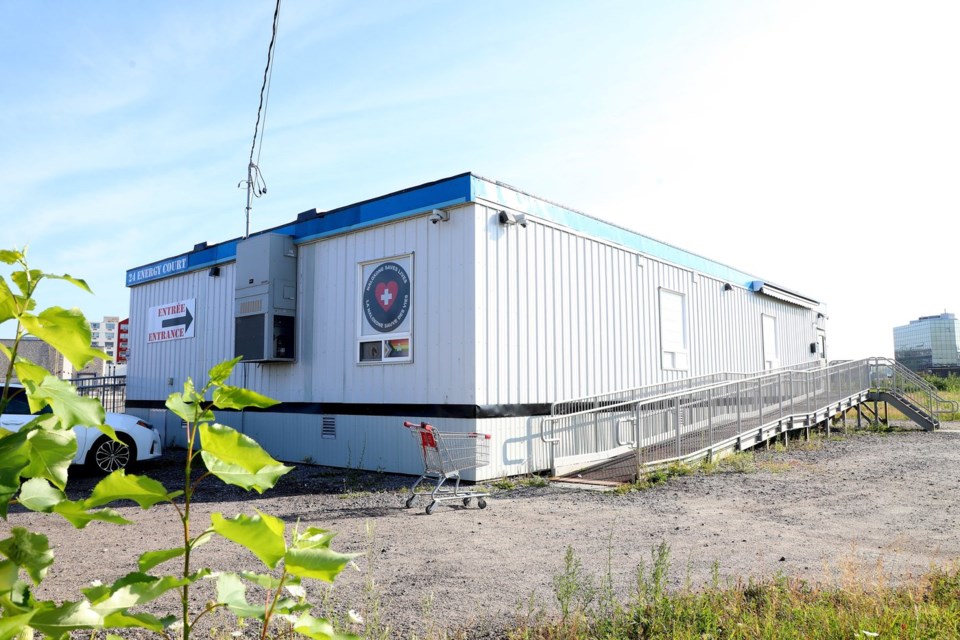TORONTO — Two Ontario government-commissioned reports recommended keeping existing drug consumption sites open across the province, increasing funding to stabilize staffing and hiring permanent security guards to boost safety, but the health minister decided against that guidance.
Instead, Health Minister Sylvia Jones announced this week that the government would ban supervised consumption sites near schools and prohibit new ones from opening in the future, with the premier defending the move on Wednesday.
The province is shifting to a treatment-focused model, the government said, as it moves away from supervised consumption. The new rules will mean the closure of 10 such consumption sites across Ontario.
SEE: Shoemaker: Problem isn’t safe consumption sites, it’s Doug Ford
Two reviews released by the province this week suggested a number of ways to improve community safety in the sites, but Jones cited higher crime rates and concerns from neighbours and parents as a reason to do away with supervised consumption sites near schools.
The changes came after the province initiated several reviews of its 17 consumption and treatment service sites following the killing of a bystander near a Toronto site.
Karolina Huebner-Makurat had been walking through her southeast Toronto neighbourhood of Leslieville shortly after noon on July 7, 2023, when she was shot as a fight broke out between three alleged drug dealers.
Last fall, the province appointed Jill Campbell, the former chief nursing executive at Toronto's Centre for Addiction and Mental Health, to take over the operations of The South Riverdale Community Health Centre, near where Huebner-Makurat was shot.
In the spring, Campbell filed a report to the province that included a number of recommendations on how to proceed with consumption and treatment service sites.
Campbell recommended expansion of harm reduction, including consumption sites, and safer supply of drugs "to prevent further accidental substance-use death and provide additional safer treatment options for substance users across the spectrum of substance illness."
She also recommended the province provide funding for security guards at sites that are located within 200 metres of schools and that the government give more money to the sites to recruit and retain staff, which has been an issue.
Campbell further recommended an expansion of treatment beds, which are currently in high demand.
"Evidence shows that consumption treatment services are a necessary public health service, implemented to save lives and prevent accidental overdose death related to substance use," Campbell wrote.
Health-care officials, including the Registered Nurses Association of Ontario, have warned of deaths as a result of shutting down supervised consumption sites.
Premier Doug Ford's government introduced the consumption and treatment services model in 2018, saying it would focus on connecting people to treatment, rather than the previous supervised consumption model.
At that time, the province put in place a cap of 21 such sites in Ontario, but has only funded 17. There are other supervised consumption sites that received federal approval but no provincial funding, and two of them in northern Ontario recently closed due to a lack of funds.
The province also commissioned Unity Health Toronto, which runs two major hospitals, to review the South Riverdale consumption and treatment site, which is embedded in a larger community health centre.
Unity said "it is suitable to maintain funding" for the consumption and treatment site at South Riverdale and for it to remain integrated within the community health centre.
"The review team found a clear need for the services at (South Riverdale), based on the number of clients being served and the broad range of health services clients are accessing via referrals and integrated services in the community health centre," the report said.
But it did note the concerns voiced by neighbours, which go back years before the fatal shooting. Residents had complained to the site and police about open drug use, discarded drug paraphernalia, fights and concerns for children, the Unity report said.
There was also poor communication by South Riverdale with local residents and no formal avenue to communicate with Toronto police.
Unity also discovered security guards hired after the Huebner-Makurat shooting were not trained in de-escalation and non-violent conflict resolution, despite saying they were.
It also found South Riverdale struggled to recruit and retain staff, especially registered nurses.
Jones's office said open drug use should not happen near schools and daycares.
"Communities, parents and families across Ontario have made it clear that the presence of drug consumption sites near schools and daycares is leading to serious safety problems," said Alexandra Adamo, a spokeswoman for Jones. "We agree."
She said the changes will protect society's most vulnerable: children. Adamo pointed to crime data from Toronto police that she said shows consumption sites within 200 metres of schools have "a marked increase in crime when compared to the rest of the city."
Ford defended the province's decision on Wednesday.
"It's a failed policy, simple as that," Ford said of his 2018 policy. "We're making a better policy."
Opioid deaths surged during the COVID-19 pandemic. In 2021, the mortality rate for opioid toxicity hit its peak of 19.3 deaths per 100,000 people, data from the Office of the Chief Coroner show. That year, 2,858 people died from opioids, the vast majority of which contained fentanyl, a particularly potent opioid.
The mortality rate dropped to 17.5 deaths per 100,000 people, or 2,593 people, in 2023. Those numbers are significantly worse than pre-pandemic rates that saw 10.7 deaths, or 1,559 people, per 100,000, the coroner's data show.
The majority of opioid toxicity deaths, nearly 70 per cent, happen in private homes, the data show.
Ontario's Chief Medical Office of Health conducted a third review of all the consumption and treatment centres, but the province did not release that report.
The Canadian Press
